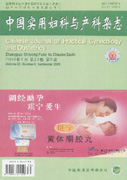|
Diagnosis and treatment of recurrent spontaneous abortion complicated with thyroid disease
WEI Xiang-cai,XUAN Jian-yan
2020, 36(11):
1073-1077.
DOI: 10.19538/j.fk2020110111
Thyroid dysfunction caused by thyroid disease is one of the common endocrine factors causing recurrent spontaneous abortion(RSA). In recent years,it has become one of the hot spots in the fields of endocrinology,reproductive medicine and perinatal medicine. Clinically common thyroid diseases mainly include hyperthyroidism,clinical hypothyroidism,subclinical hypothyroidism and autoimmune thyroid diseases.No consensus has been reached on the standardized diagnosis and treatment of RSA patients combined with thyroid disease,so nowadays the phenomenon of inconsistent diagnostic criteria,over-treatment or irregular drug use is common.The purport of this paper is to provide a reference consensus for clinicians in the diagnosis and treatment of RSA patients with thyroid disease.
|

